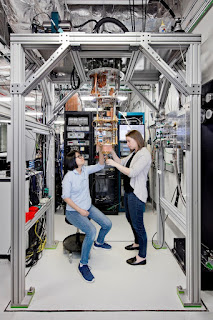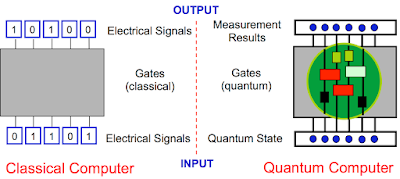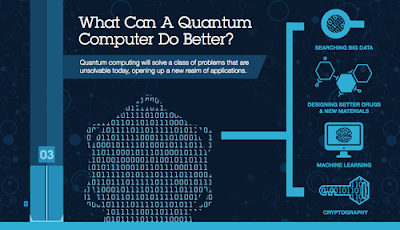Twitter Feed
The Endpoint Imperative: Global Security Compliance. Are you ready?
China has its Cybersecurity Law. Next May, the General Data Protection Regulation – or GDPR –goes into effect for the European Union. Research shows most organizations just aren’t…
The Endpoint Imperative: IT Spending: Setting Priorities in a Volatile World
Fast-evolving trends are changing the way IT thinks about security. To stay secure and productive, IT operations must excel at the fundamentals: PC refreshes for security, and optimizing end-user…
Top 1000 Tech Bloggers
The Rise “Top 1000 Tech Bloggers” leaderboard recognizes the most inspiring Tech journalists and bloggers active on social media. They use Klout scores (50%) and the blogger’s twitter conversations on…
IBM – The Power of Cloud Brokerage
Hybrid cloud adoption is now mainstream and you are making decisions every day about how to transform application and infrastructure architectures, service delivery, DevOps, production operations and governance. With Cloud…
More SMB Love Needed
In a recent post, titled “10 Surprising Facts About Cloud Computing and What It Really Is”, Zac Johnson highlighted some interesting facts about cloud computing in the SMB…
ATMs Are IT Too!
That world of homogenous IT technology managed entirely by the internal IT organization has long disappeared. Operations today require efficient and global management of technologically heterogeneous environments. The challenges and…
Digital Transformation Asset Management
Today’s businesses run in the virtual world. From virtual machines to chatbots to Bitcoin, physical has become last century’s modus operandi. Dealing with this type of change in business even…
The Game of Clouds 2017
The AWS Marketplace is growing at breakneck speed, with 40% more listings than last year! This and more insights were revealed when CloudEndure used their custom tool to quickly scan the…
Managing Your Hybrid Cloud
Photo credit: Shutterstock Runaway cloud computing cost may be causing an information technology industry crisis. Expanding requirements, extended transition schedules and misleading marketplace hype have made “Transformation” a dirty word. …
American Airlines Adopts Public Cloud Computing
Did you know that the reservations systems of the biggest carriers mostly run on a specialized IBM operating system known as Transaction Processing Facility (TPF). Designed by IBM in the…
- The release of a new API (Application Program Interface) for the IBM Quantum Experience that enables developers and programmers to begin building interfaces between its existing five quantum bit (qubit) cloud-based quantum computer and classical computers, without needing a deep background in quantum physics.
- The release of an upgraded simulator on the IBM Quantum Experience that can model circuits with up to 20 qubits. In the first half of 2017, IBM plans to release a full SDK (Software Development Kit) on the IBM Quantum Experience for users to build simple quantum applications and software programs.
The IBM Quantum Experience enables anyone to connect to IBM’s quantum processor via the IBM Cloud, to run algorithms and experiments, work with the individual quantum bits, and explore tutorials and simulations around what might be possible with quantum computing. Since its launch less than a year ago, about 40,000 users have run over 275,000 experiments on the IBM Quantum Experience. It has become an enablement tool for scientists in over 100 countries and, to date, 15 third-party research papers have been posted to arXiv with five published in leading journals based on experiments run on the Quantum Experience.
 The broad availability of quantum computing capability could prove to be a significant blow to current data encryption practices. In 2015 the US National Security Agency actually advised US agencies and businesses to prepare for a time when the cryptography protecting virtually all e-mail, medical and financial records, and online transactions would be rendered obsolete by quantum computing. The US National Institute for Standards and Technology (NIST) is also running a competition to spur work on post-quantum algorithms.
The broad availability of quantum computing capability could prove to be a significant blow to current data encryption practices. In 2015 the US National Security Agency actually advised US agencies and businesses to prepare for a time when the cryptography protecting virtually all e-mail, medical and financial records, and online transactions would be rendered obsolete by quantum computing. The US National Institute for Standards and Technology (NIST) is also running a competition to spur work on post-quantum algorithms. - Drug and Materials Discovery: Untangling the complexity of molecular and chemical interactions leading to the discovery of new medicines and materials;
- Supply Chain & Logistics: Finding the optimal path across global systems of systems for ultra-efficient logistics and supply chains, such as optimizing fleet operations for deliveries during the holiday season;
- Financial Services: Finding new ways to model financial data and isolating key global risk factors to make better investments;
- Artificial Intelligence: Making facets of artificial intelligence such as machine learning much more powerful when data sets can be too big such as searching images or video; or
- Cloud Security: Making cloud computing more secure by using the laws of quantum physics to enhance private data safety.
This content is being syndicated through multiple channels. The opinions expressed are solely those of the author and do not represent the views of GovCloud Network, GovCloud Network Partners or any other corporation or organization.
( Thank you. If you enjoyed this article, get free updates by email or RSS – © Copyright Kevin L. Jackson 2017)
Cloud Computing
- CPUcoin Expands CPU/GPU Power Sharing with Cudo Ventures Enterprise Network Partnership
- CPUcoin Expands CPU/GPU Power Sharing with Cudo Ventures Enterprise Network Partnership
- Route1 Announces Q2 2019 Financial Results
- CPUcoin Expands CPU/GPU Power Sharing with Cudo Ventures Enterprise Network Partnership
- ChannelAdvisor to Present at the D.A. Davidson 18th Annual Technology Conference
Cybersecurity
- Route1 Announces Q2 2019 Financial Results
- FIRST US BANCSHARES, INC. DECLARES CASH DIVIDEND
- Business Continuity Management Planning Solution Market is Expected to Grow ~ US$ 1.6 Bn by the end of 2029 - PMR
- Atos delivers Quantum-Learning-as-a-Service to Xofia to enable artificial intelligence solutions
- New Ares IoT Botnet discovered on Android OS based Set-Top Boxes




